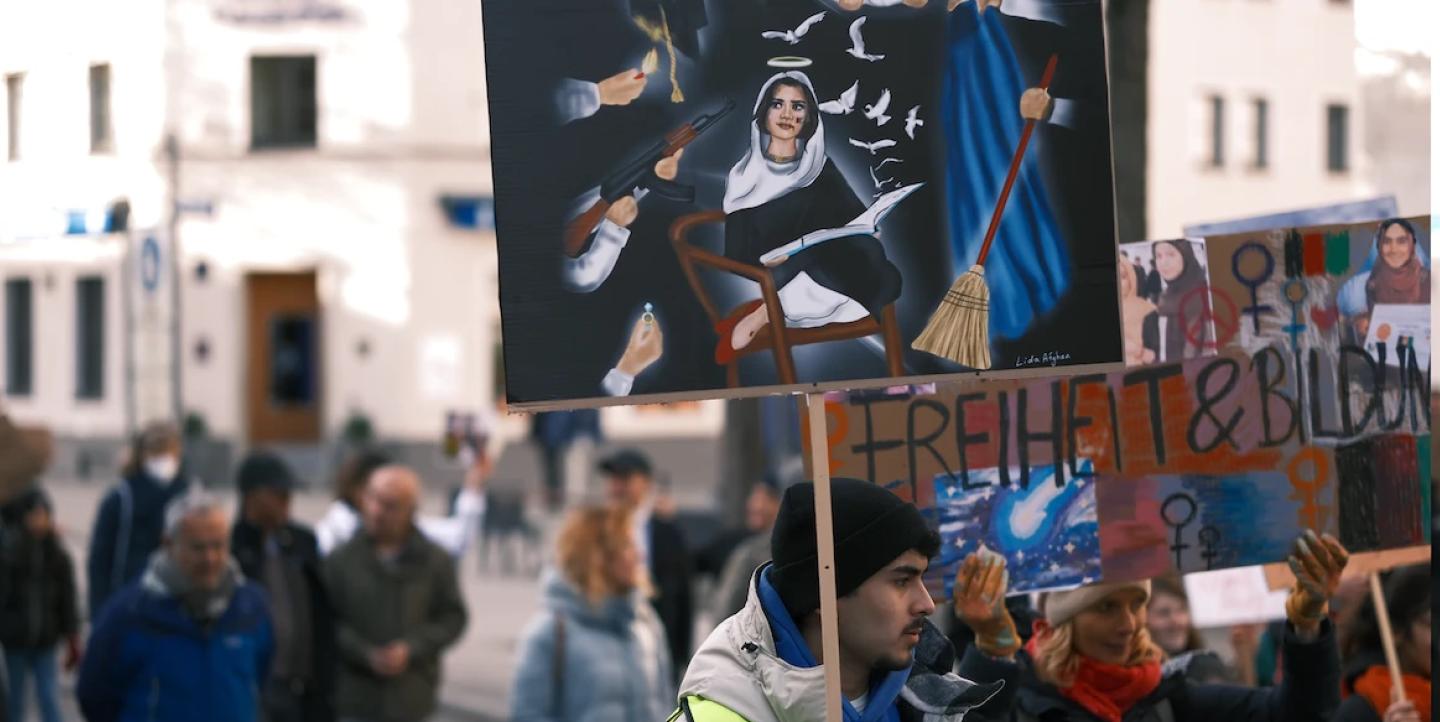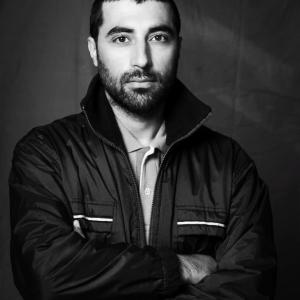Journalists in Afghanistan today are contending with a severe crackdown on the media and freedom of speech. Many have been left with no choice but to leave the country.
Women journalists are in a particularly dire situation as the Taliban, since taking over the country in August 2021, have enacted strong restrictions on women's right to work and education.
I interviewed a woman journalist in Afghanistan, who used the pseudonym, Hawa, about the suffocating environment Afghan journalists – especially women – are navigating today. Hawa is a veteran journalist who now works as a reporter in Kabul. Although she dealt with challenges as a reporter before the Taliban’s return to power, the restrictions today are harsher than ever.
Here is what she had to say.
Tell us about the crackdown on media in Afghanistan under the Taliban
Since the Taliban takeover, working conditions for journalists have become very difficult. The law on access to information, and other legislation related to media have been repealed. In general, we cannot broadcast news critical of the Taliban. We work under the Taliban’s restrictions, and uncensored political views can’t be published.
TV debates can’t be critical of the Taliban, and we can’t publish some necessary news. Women's protests, for instance, can only be published as short news, without slogans that women shout during them. When civil society and women activists are arrested, we aren’t allowed to report on this. News about opposition groups like the National Resistance Front, Afghan Freedom Front and other, and updates about Ahmad Massoud, the opposition leader have no chance of being published.
Even statements by foreign leaders have to be published in a way that leaves out harsh criticism of the Taliban.
What are the challenges of being a woman journalist in Afghanistan under Taliban rule?
The situation is worse if you are a female journalist. Women reporters, anchors and their guests cannot go on TV without a hijab and face covering. Women and men cannot be on a news program together. Women journalists and anchors should wear long black clothes. This is mandatory; if there were no Taliban, this would naturally change. Women journalists cannot be on camera when they are interviewing the Taliban – if they are successful in getting an interview.
Many Taliban officials do not give interviews to Afghan women journalists and women can’t even enter some institutions like the Ministries of Defense, Interior, Education, Higher Education, Urban Development and Housing, and Justice. In general, journalists face difficulty entering these institutions, but women cannot enter them at all.
Sometimes when women journalists convince the spokesperson of the Defense Ministry for an interview, for instance, he comes outside and gives an interview on the street. Another Taliban rule is that a woman journalist cannot interview these officials by herself, and instead must be accompanied by a male colleague.
Our working offices are segregated based on gender. Even entrances and exits are separate, and we aren’t allowed to talk to men in the office much.
Restrictions on women are increasing by the day. Women journalists fear a full ban on their work.
What has been the Taliban’s impact on people's view of the media?
People are afraid that speaking out against the Taliban could put their lives in danger because there is no freedom of expression. No one can criticize the regime or express their views and demands.
As a result, people do not talk to the media about the Taliban and political issues. Sometimes, they agree to talk about social and economic issues. This is the same for experts, too.
How do the Taliban treat women journalists?
When we go to the field to report, there is a fear of the Taliban retaliating and arresting us. I was once detained by the Taliban. Intelligence forces took me and my cameraman to a building that we didn’t recognize – it was not the local police station – and interrogated us.
Our only crime was filming a woman vendor, and producing a report about her. But the Taliban asked why we were filming the woman, and said that by showing poverty we were reflecting a bad image of the Taliban to the world. They treated us poorly and inhumanely during the interrogation. We finally were released and could publish our reporting, but only after the Taliban insulted and humiliated us. They deleted parts of the interview that they saw as opposing the regime and showing their weaknesses.
When we are interviewing people in public or report on women, there is more fear of being detained. When the Taliban see us reporting, most of the time they ask us to show them written permission from the Kabul Police Department or the local police station. There have been many examples of us being kicked out of an area.
We have been insulted and humiliated many times by the officials of the Ministry of Promoting Virtue and Preventing Evil. They stopped our car several times and warned us that if we don’t wear a hijab according to their interpretation from Islam, we would get arrested. The Taliban have stopped my live broadcast in public several times.
During the women's protest on March 8, the Taliban threatened us and deleted our footage. Although we resisted and continued work, when the Taliban special forces arrived and dispersed the women, we also had to leave the area. Another time, when I was interviewing girls about the ban on education, the Taliban prevented those girls from giving interviews and deleted my videos.
Amid the current situation, what do you expect from the international community?
We try to publish the facts as best we can. But, when we see that a report is endangering our lives or causes our newsrooms to be shut down, we have to stop publishing or leave out important and sensitive information. In my view, these restrictions have reduced people’s trust in the media. But I think it is better than shutting down all media and having a complete information vacuum in the country.
The only positive thing is that we have better security than before. Journalist aren't afraid of suicide or armed attacks. There is fear of ISKP [Islamic State - Khorasan Province] attacks, but not like before when there was so much fear of Taliban attacks on the media.
We ask the international community to guarantee women's freedom to work. Women should have their rights. They should be able to work in all government offices, including National Radio Television Afghanistan. They should have their civil and social freedoms, and be allowed to participate politically. The support from the international community should be meaningful and pragmatic.
If the situation continues like this, journalists will be in search of safe ways to leave the country. I am continuing my work as much as I can, for the people and in order to encourage women. I see my work as a protest against the Taliban.
For safety reasons, it was not possible to publish certain details and photos of the interviewed journalist. We have edited parts of the interview, including names of places.
This article was originally published on our Persian site. It was written and translated to English by Mohammad Shabir Ahmadi.


